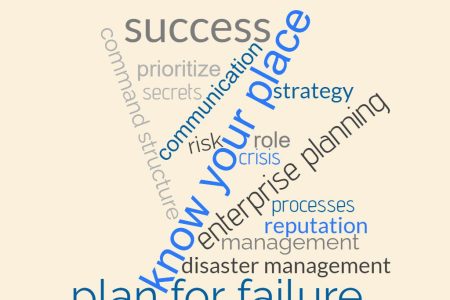If you landed here looking for a secret to successful enterprise planning, I’m sorry to tell you this but there isn’t one.
The only secret is the one people don’t talk about because they’re too busy trying to look good — and that is that enterprise planning works best when you air all the dirty secrets of what could go wrong.
We love to talk about quick wins for success; what’s less sexy to talk about is the underbelly of enterprise planning. You know, those little “oops” moments that can spiral into a logistical nightmare (or worse, a PR one).
All the while, they could have been avoided.
When you do start to talk about the potential for crisis in your planning, you’ll notice the difference between a decent operations team and an excellent one. (I’ll actually argue there are only excellent or bad operations and event planning teams; there is no middle ground).
The Showpiece Solutions strategies for enterprise planning are better than any ‘exclusive tip’ someone else might try to sell you on. They don’t rely on hope or crossed fingers or a hack. And, when applied correctly, they’re foolproof because nothing will throw you off — you’ll have already thought of it and planned accordingly.
These are the three keys to success in planning enterprise-level operations and events.
Actively choose to plan
It seems like a no-brainer — enterprise planning requires a plan. The problem is most plans are only based on when things go right. The assumption is it will always work out in the end, even when things go wrong. But that’s ignorance, not truth. All major hiccups (yes, even force majeure) can be mitigated or avoided entirely by having a plan and getting ahead of the “what ifs”.
So the first step is simple enough: plan for it all. Address potential crises instead of hoping for the best. Even if things have always worked out in the past, there’s no guarantee they will in the future.
Identify a command and control structure
So you have your plan and have identified potential risks in all areas: financial, safety, PR — the whole gamut. Now, you need an action plan and infrastructure for incident response and control. Failing to have this in place can cause confusion and miscommunication during a crisis, ultimately worsening the situation, so it’s crucial to have infrastructure and processes in place well before the event.
Also, ensure everyone knows their role; I see many operations professionals trying to take on everything themselves, quickly resulting in burnout, or worse: an inability to be effective. Instead, delegate tasks based on expertise and capabilities to help address the crisis more efficiently.
Create a solid communication strategy
A plan and infrastructure are nothing if nobody knows what’s in place, making the last piece of your strategy arguably the most important: communication. Implementing a communication plan helps avoid potential misunderstandings or judgment errors during an emergency and ensures everyone involved knows what to do.
Roles and responsibilities should be communicated and understood through tabletop scenario incidents; this proactive approach exposes gaps in your systems so you can address them well before an incident arises and respond appropriately.
Issues should also be addressed as they arise so they can be communicated among your team and resolved swiftly. Failing to actively communicate can result in delayed or ineffective responses, with potentially catastrophic consequences.
The Showpiece Difference
So how does this look in practice? Here’s one example.
We had an event with a group of VIPs (I should say VVVIPS, as in very, very important). This group did not receive proper guest guidance from their handlers, causing a delay in the whole program.
Unfortunate? Yes. Disastrous? Hardly.
Thanks to immediate communication with stakeholders and partners, we resolved the situation and proceeded without any further setbacks. This was only possible because of our strong focus on communication and relationship-building with outside stakeholders during the planning phase; our transparency and trust helped us overcome a potential PR nightmare.
We’ll never promise you perfectly executed operations without a single hitch. However, we can promise a solid plan, the appropriate infrastructure, and a clear communication strategy to ensure any incidents are handled with care (and conveniently, this always leads to encore results).
Take your enterprise planning to the next level
With modern technology and social media platforms at our fingertips, reputations have never been more crucial to protect. Planners and clients must prioritize their response processes with strategies that prevent stressful situations and help their teams communicate effectively if, nay…when a crisis occurs. If you need help getting started with enterprise planning, contact our team today to see how Showpiece Solutions can help.

